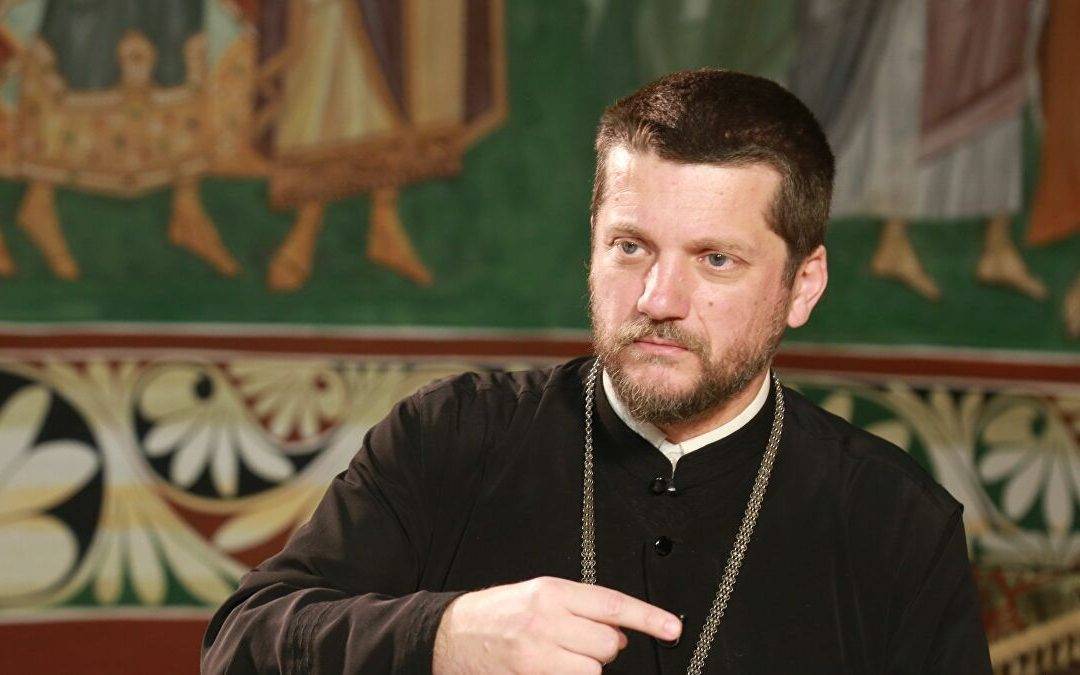
Father Gojko Perović: The Serbian Orthodox Church and Russia
Written by: Priest Gojko Perović, parish priest of Podgorica
One of my interlocutors recently asserted that his ancestors were once believers in the "Montenegrin Orthodox Church". I reminded him that the organization under that name has existed only since 2000, not really recognized as a church, although it presents itself as such, and that, as such, it could not have anything to do with his ancestors - no matter who, no matter when, and no matter where they were. .
In that dialogical speculation about the history of the Church, in order to move things far enough away from the present time, the interlocutor said that the "CPC" existed some "300 years ago". We didn't deal with the topic further or in more detail, but later I thought about the projected year 1724, ("300 years ago") and I would be sorry if I didn't clarify which and what kind of Church we were talking about that summer of the Lord. Namely, the Cetinje Metropolitanate was then an unequivocal part of the Patriarchate of Peć. In 1719, Patriarch Mojisje, on the proposal of Bishop Danilo Petrović, ordained the future Metropolitan Sava Petrović as bishop (assistant, so-called coadjutor). This happened during a regular canonical visit to the Cetinje Metropolitanate by the Serbian Patriarch of Pec.
And the next metropolitan, Vasilija Petrović, will be ordained by the Patriarch of Peć, Atanasije, in Peć in 1750. However, the topic of this text is not the new "discovery of America" as the Cetinje Metropolis (formerly Zetska) was created, lasted and exists to this day as an inseparable part of the Patriarchate of Peć (which for the last 100 years or more has been officially called the Serbian Orthodox Church). The topic is the traditional relationship of this religious institution towards Russia, and I am opening it on the occasion of frequent attacks from various political and ideological addresses that the SPC and its metropolitan in Montenegro are an "extended arm", an "expository" of today's Russian political interests. Such accusations are unfounded, and the question arises whether ignorance of one's own history or ill will is the cause of someone's "swapping theses" and confusing our respect for the brotherly relations of the two peoples, the Russian contribution to, in general, to survive and exist (both as the Black Metropolis and as a state Gora) on one side, with the banal and invented political involvement of the Church, on the other side?
Well, even before the mentioned metropolitans of Cetinje (Danilo, Sava and Vasilija), we were not "unconnected" with the Russian Church (Cyrillic-Methodiev heritage, common rootedness in the cult of Saint Sophia of Constantinople, the departure of Rastek Nemanjić to Mount Athos together with Russian monks...) , but then, "300 years ago", the connection between the local archbishops and the Russian imperial court developed, which in the next two centuries of intensive cooperation will enable the survival and development of both the Metropolis itself and the state of Montenegro (whose modern form emerged - literally and directly - from the Cetinje Monastery). The conditions for the Metropolis and the state to survive in the 18th and 19th centuries without Russian help are equal to the conditions for life to exist on the Moon or Mars. I want to say: maybe, but almost impossible. The fact that this Russian aid to us fit perfectly into other and broader Russian interests does not diminish the moral obligation to be forever grateful for such and such Russia's attitude towards Cetinje.
In the meantime, the Turks abolished the Patriarchate of Peć, so the Cetinje metropolitans complained to the Russian court and the Church Synod there about such an act by the Porte. Namely, the abolition of their "mother church" was not to their liking. In that mood of regret that there is no patriarch in Peja, and the desire to restore that institution, the life and existence of the Cetinje Metropolis in the principality and kingdom of Montenegro will pass. Until the process of church unification in 1918–20. (restoration of the unity of the Patriarchate of Peć) chaired by the metropolitan of Cetinje personally, and whose two next significant patriarchs will be archbishops from Montenegro (Varnava Rosić and Gavrilo Dožić).
Although pressed by the interests of the Viennese court, the Karlovy Vary in the Habsburg Monarchy will have a favorable attitude towards the Russian people, the court and the Church. The same relationship of fraternal cooperation with Russia will be shared between the Church and the principalities and kingdoms of Serbia.
And again, nowhere did it have as much momentum as in Petrović's Montenegro, where, for example, Prince Nikola sends the Russian Synod for approval, the plan and program of the future Cetinje seminary.
But let's go back to the Russians and today's time. The SPC and its Metropolis of Montenegro and the Littoral represent a traditional faith, a faith that preserves memory and cherishes established values. As such, it must not forget the previous three centuries of self-sacrificing fraternal help to our people and our Church, under any pretext of the perception of current events. To this should be added the experience of the joint suffering of both local churches (Russian and Serbian) in the Bolshevik pogroms, as well as the contribution to the development of local education and culture made by exiled Russian intellectuals from the USSR. They performed the duties of professors, teachers, officers, and cultural workers in Cetinje and other cities throughout the then Zeta Banovina of the Kingdom of Yugoslavia.
That's why today, when the modern and "honest" world has only words of condemnation for one bomb (those between brothers in Ukraine and Russia), and is silent on the others (in Palestine), we in the SPC do not have to be as explicit as the Pope. to say that the conflict in Ukraine was to a good extent provoked by NATO with its "barking at the borders of Russia", but we can be loud in calls for peace, in empathy both for our brothers in Russia and for our brothers in Ukraine, and, likewise, for everyone who are suffering today in Palestine. We can and must, to the best of our ability, represent a voice of reason that will neither unilaterally condemn nor support anyone in fratricidal bloodshed. And we do not have to and must not be a rattle in the hands of the world's power centers, especially when they are silent about one bloodshed and do not move their tails to prevent it (because their political interests dictate to them), while they are vocal about the other and very involved in it (from the same reasons of interest).
Source: Žurnal.me
PHOTOS
RELATED ARTICLES
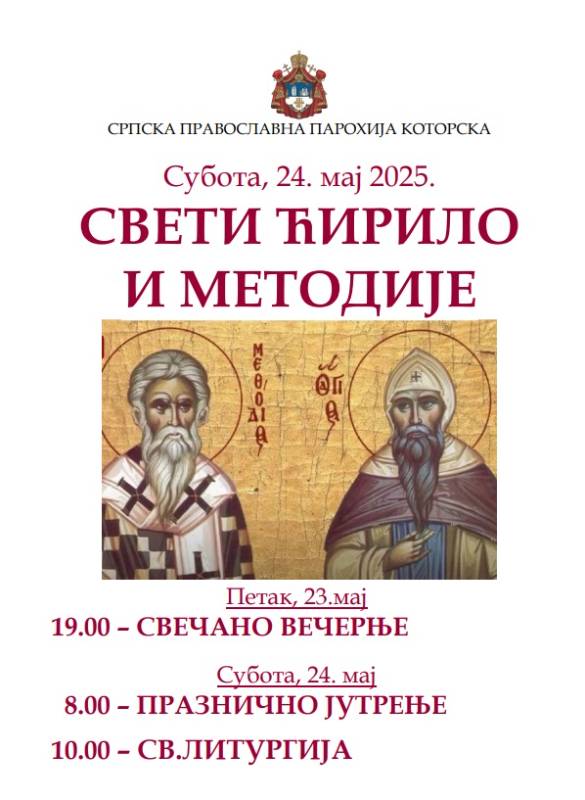
WORSHIPS ON THE OCCASION OF SAINT CYRIL AND METHODISTS
SERBIAN ORTHODOX PARISH OF KOTOR ANNOUNCES WORSHIPS ON THE OCCASION OF SAINT...
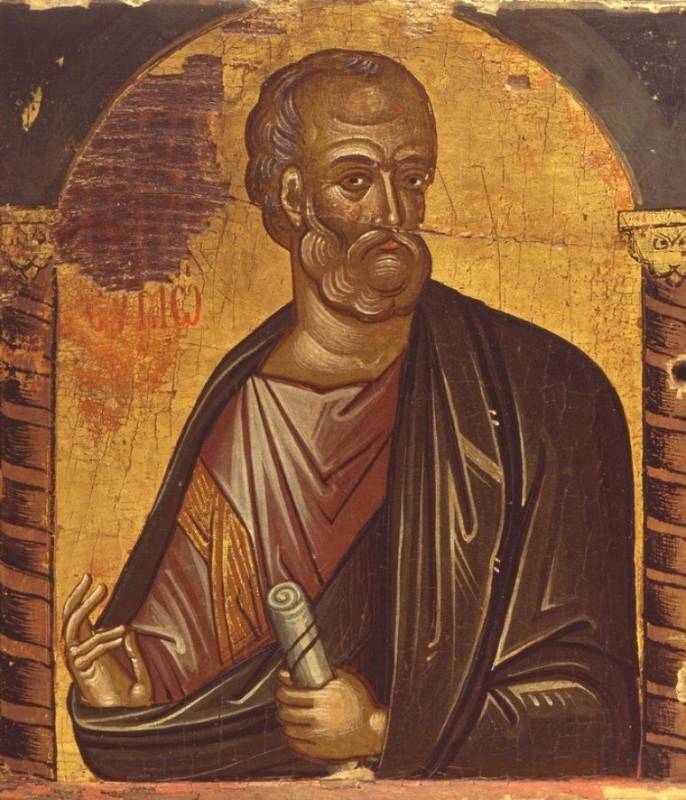
Calendar for May 23 Saint Apostle Simon the Zealot
One of the Twelve, a native of Cana of Galilee. The Lord Jesus Christ came to...
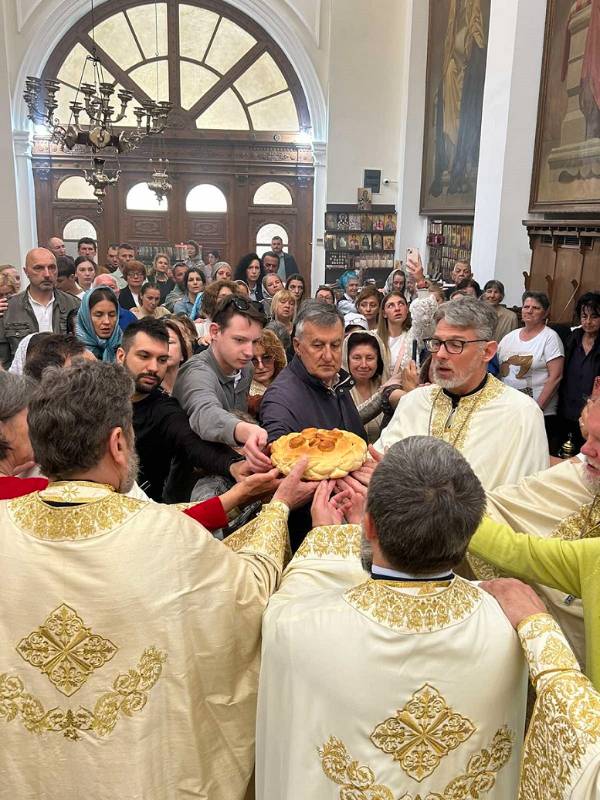
SAINT NICHOLAS TODAY LITURGICALLY CELEBRATED IN THE KOTOR CHURCH THAT BEARES HIS NAME
In the Church of Saint Nicholas in the Old Town of Kotor, today on the feast of...


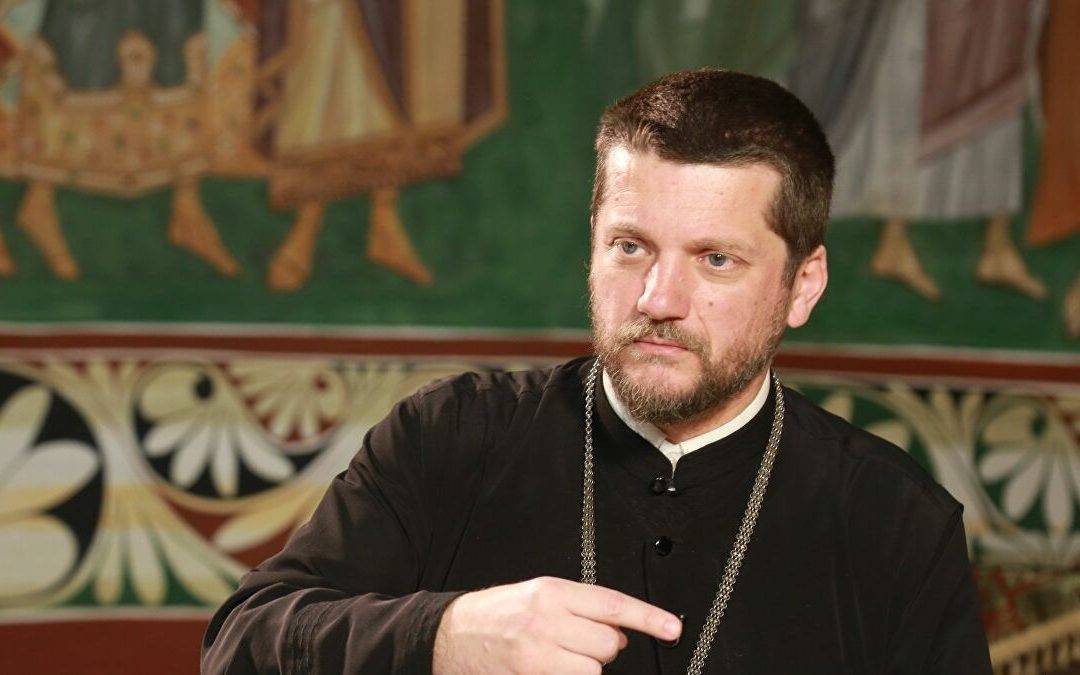

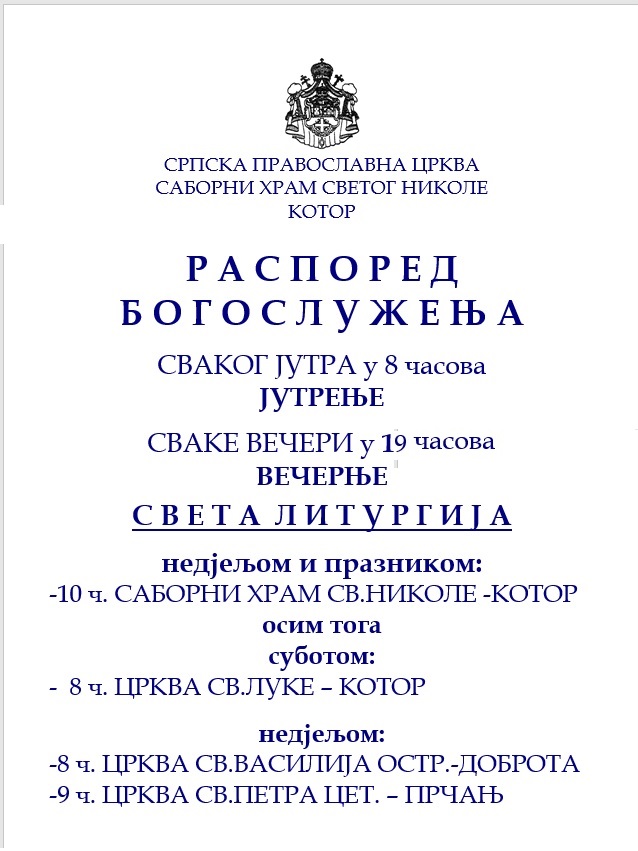
.png)